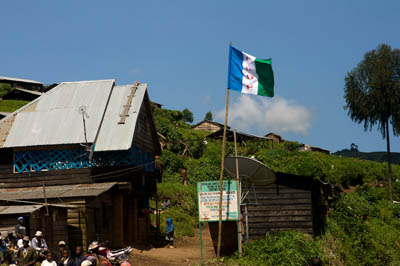
In a recent trip to eastern Congo, Enough Co-Founder John Prendergast and Congo Field Researcher Fidel Bafilemba delved deep into the illegal minerals trade and its links to the violence that continues to plague eastern Congo. Through a series of interviews conducted in North Kivu, Prendergast and Bafilemba offer a view from the ground of how the minerals trade continues to be dominated by mafia-like networks of military, political, and business interests in the Congo, and the effects these networks have on regional and international supply chains.
The two authors argue that in order to achieve lasting peace in Congo it is necessary to make peaceful trade more attractive than violent extraction. This can be achieved through the creation of a certification process that guarantees the minerals coming from the region are conflict free. The report says:
“Until there is a certification system that takes the profits from illegally and violently extracted minerals out of the hands of the armed groups and begins to channel them toward security and economic opportunities for local communities, the incentive structure will remain biased towards impunity, conflict, and a predatory state.”
Though there have been initiatives started within Congo and the Great Lakes region to implement certification schemes, these systems will do next to nothing to transform the mineral trade without appropriate leadership, cooperation, and transparency. As Enough Research Director David Sullivan writes in the Editor’s Note:
“The United States government and its allies, as well as responsible companies at the end of the supply chain with an interest in cleaning up the trade in critical raw materials, should partner with the region to help develop a certification process that includes robust checks and penalties needed to make sure that behavior actually changes.”
Read the full field report here.

